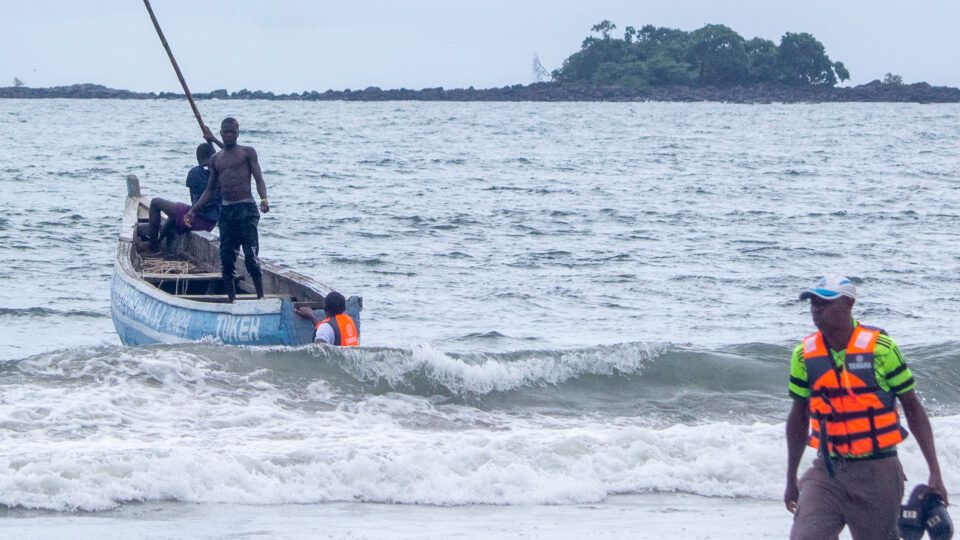 Stories
Stories
June 17, 2025 • 1 min read
In Tokeh, a coastal town in Serra Leone where most residents depend on fishing, sea accidents have long posed a serious threat. During the last rainy season, several lives were lost due to limited rescue capacity. With support from GOAL Sierra Leone’s Resilience of the Blue Economy project, the community received essential rescue equipment and training. Since then, local rescue efforts have improved significantly, helping to prevent further tragedies.

Tokeh is a coastal community in Sierra Leone where 95% of the population relies on fishing for income. The community has faced repeated challenges during the rainy season, including fatal maritime accidents due to a lack of rescue equipment and inadequate communication tools. In response, GOAL Sierra Leone launched the Resilience of the Blue Economy project, funded by the Sunflower Foundation through the Community Foundation Ireland, to improve safety and preparedness in Tokeh and three other coastal communities.
Local Challenges and Community Risk
Fishing is the backbone of Tokeh’s economy, but the community has long struggled with limited resources for emergency response. Boat breakdowns and poor communication have made rescue operations difficult, often requiring help from neighbouring communities. These gaps have led to preventable losses during the rainy season.
GOAL’s Intervention and Capacity Building
Through the Resilience of the Blue Economy project, GOAL Sierra Leone provided Tokeh with vital equipment, including boat engines, GPS devices, mobile phones, and life jackets. Youth and women were trained and organised into early warning and rescue teams, improving the community’s ability to respond quickly and effectively to emergencies.
Community Impact and Future Outlook
Since the intervention, residents report a noticeable improvement in safety at sea. The formation of trained rescue teams and access to reliable equipment have reduced the risk of fatal accidents. Community members have expressed appreciation and hope that similar models will be adopted in other vulnerable areas.
